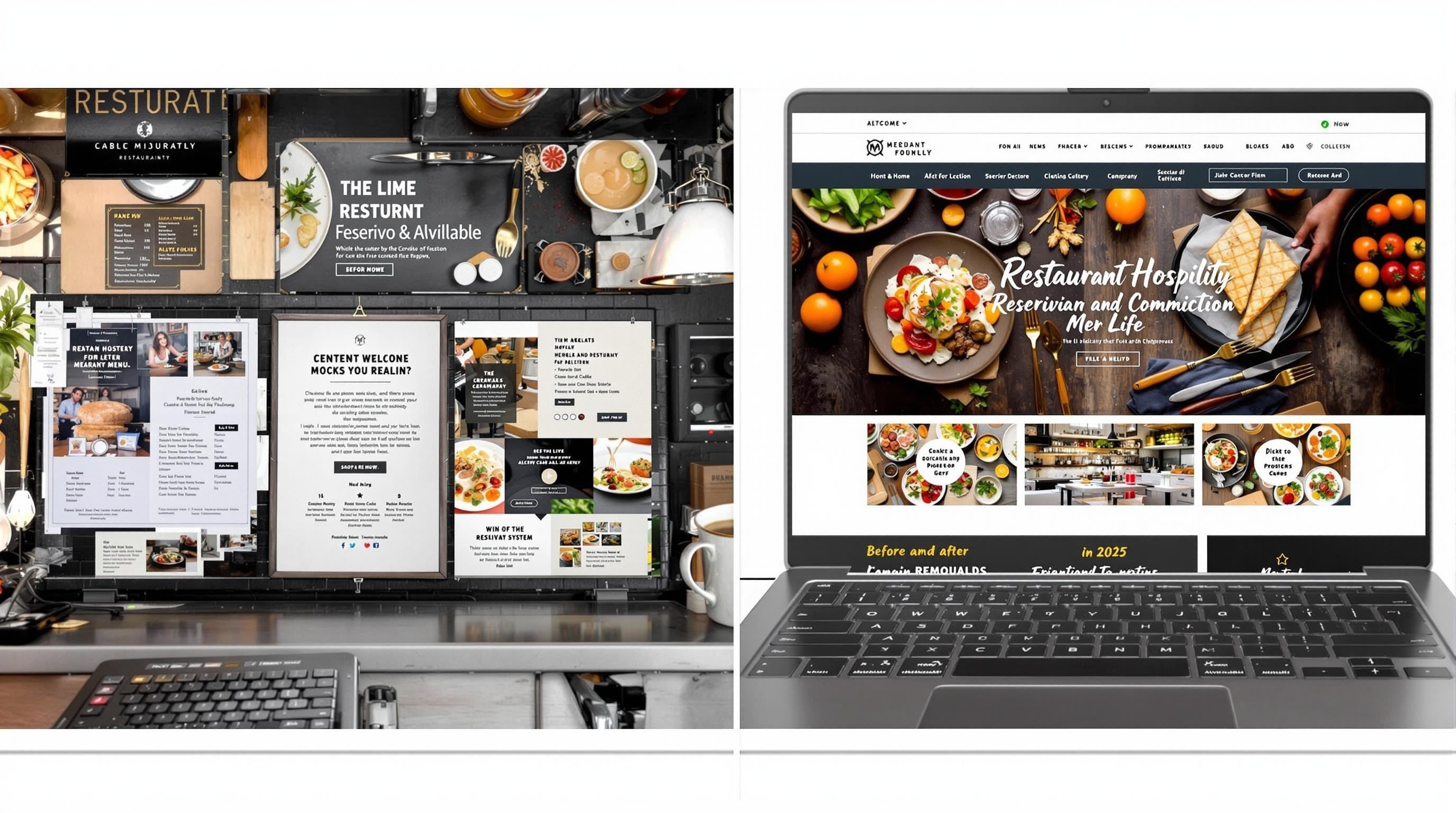In 2025, a restaurant's digital presence isn't just a nice-to-have—it's the frontline of your business. The days when a simple online menu and contact form could suffice are long behind us. Today's diners don't just want information; they demand experiences that begin the moment they discover you online.
As we navigate through this transformative year, the gap between hospitality businesses that embrace digital innovation and those clinging to outdated web practices has never been wider. The difference isn't merely aesthetic—it's existential. In an industry where 70% of potential guests check your website before ever setting foot in your establishment, your digital ecosystem has become as crucial as your physical space.
The hospitality websites that thrive in 2025 aren't just pretty digital brochures—they're sophisticated business engines that drive bookings, build loyalty, and deliver measurable ROI. They're powered by AI, optimized for every device, and designed to convert visitors into guests with surgical precision.
At Epicurean Digital Consultants, we've witnessed firsthand how strategic digital transformation can revitalize struggling hospitality businesses. The right digital approach doesn't just improve your website—it fundamentally changes how you connect with guests, streamline operations, and grow your bottom line.
This isn't about following trends. It's about embracing a new paradigm where your digital presence works as hard as you do.
Welcome to the era where hospitality websites evolve from static placeholders to strategic business assets. Let me show you how we're making this happen.
The Problem: When Your Website Becomes Your Weakest Link

Exceptional Physical Experience
Walk past any popular café or restaurant today, and you'll likely see a bustling atmosphere, carefully crafted interiors, and passionate staff delivering exceptional experiences.

Disappointing Digital Presence
Yet for many of these same establishments, their digital front door tells an entirely different story — outdated, difficult to navigate, and failing to represent their brand effectively.
In my work with hospitality businesses across the country, I consistently encounter websites that undermine rather than enhance the brand they represent. These digital dinosaurs share common symptoms that actively drive potential customers away:
Outdated designs that scream "2015"
Think cluttered layouts, tiny text, stock photos of generic food, and color schemes that clash with the brand's physical presence.
Mobile experiences that test patience
Despite 80% of restaurant searches happening on mobile, many websites remain stubbornly desktop-focused, requiring pinch-zooming and offering tiny buttons.
Static content that fails to engage
PDF menus that take forever to download, outdated information, and generic "about us" pages that miss opportunities to tell compelling brand stories.
Booking systems that create barriers
Complex reservation forms, lack of real-time availability, and disconnected third-party systems that force customers to leave your website.
Zero personalization or intelligence
While other industries leverage data and AI, many hospitality websites still offer the same generic experience to every visitor, regardless of preferences.
Consequences are measurable
70% of diners check a restaurant's website before deciding to visit. When that digital first impression falls flat, potential guests simply move on to competitors.
Even more concerning is the compounding effect of these digital shortcomings. An underwhelming website doesn't just lose you the immediate booking—it damages perception of your entire brand. In an industry built on experiences and attention to detail, a neglected digital presence signals potential neglect elsewhere.
The hospitality businesses suffering most from these issues aren't necessarily lacking vision or quality. Often, they're run by passionate owners who excel at creating remarkable in-person experiences but lack the technical expertise or strategic guidance to extend that excellence online.
This disconnect between physical and digital experiences represents both a challenge and an opportunity. For businesses willing to embrace transformation, the potential upside is enormous—not just in recovered bookings, but in creating digital assets that actively drive growth rather than hinder it.









